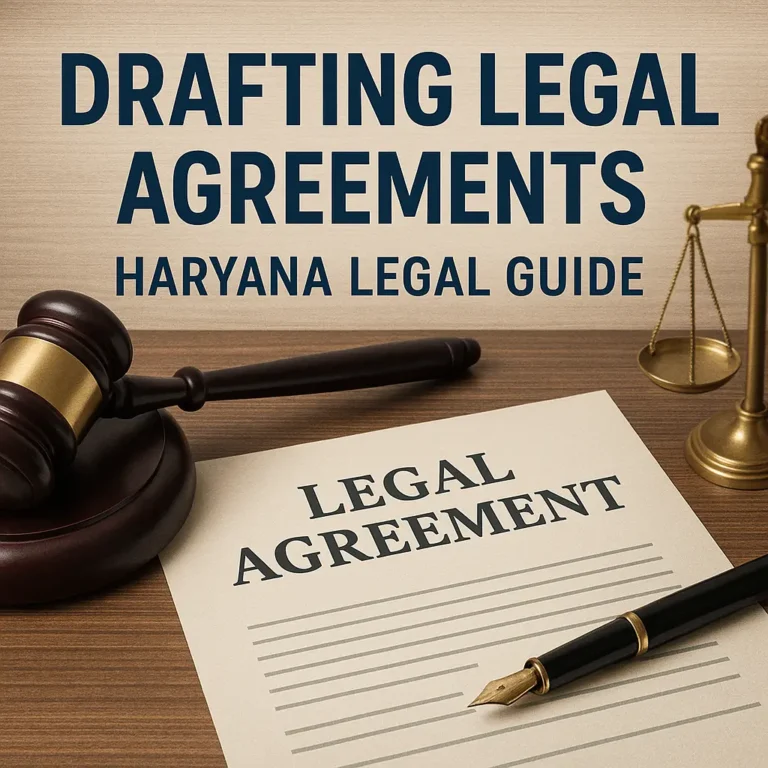This article will give you Understanding of Terms And Conditions In Contracts.Contracts are like the backbone of most agreements in India, whether you are buying a house, starting a new job, or getting services from someone. They are filled with “terms and conditions” – those long paragraphs that most of us skip reading. But understanding these terms is crucial because they define what you, and the other party in the contract, can or cannot do. Let’s break down the complex world of contracts into simple words, following the Indian law framework.
What Are Contracts and Their Importance?
In India, a contract is an agreement between two or more parties that is enforceable by law. It could be about selling something, doing a job, or any other service. The Indian Contract Act, 1872, is the main law that talks about contracts. Contracts are important because they:
- Set clear expectations.
- Protect your rights.
- Outline how to resolve disputes.
Key Elements of a Contract
Offer and Acceptance
One party makes an offer, and the other accepts it. This is the first step in creating a contract.
Consideration
This is what each party gets in return. It can be money, a service, or something else of value.
Intention to Create Legal Relations
Both parties must intend for the contract to be legally binding.
Capacity to Contract
The parties must be capable of entering into a contract, meaning they are of legal age and sound mind.
Understanding Terms and Conditions in Contracts: A Simple Guide Under Indian Law
What Are Terms and Conditions?
They are the details of the agreement. This includes what each party has agreed to do, how long the agreement lasts, and what happens if someone doesn’t follow the agreement.
Types of Terms in Contracts
Express Terms
These are the terms that are clearly mentioned and agreed upon by everyone involved.
Implied Terms
These are not written but are understood to be part of the contract based on the situation or law.
Why Are Terms and Conditions Important?
- Clarity: They make everyone’s duties and rights clear.
- Protection: They help protect your interests.
- Dispute Resolution: They provide a way to solve disagreements.
Common Terms You Should Know
Liability
Who is responsible if something goes wrong?
Termination
How and when the contract can end.
Confidentiality
Keeping certain information private.
Dispute Resolution
How disputes will be resolved, often mentioning mediation or arbitration before going to court.
Tips for Understanding Contract Terms
- Read Everything: Yes, it can be long, but it’s important.
- Ask Questions: If something is not clear, ask for an explanation.
- Seek Legal Advice: A lawyer can help explain terms and protect your interests.
- Negotiate: If you don’t agree with a term, try to negotiate a change.
Conclusion: The Power of Knowledge
Contracts are a part of everyday life in India, from personal to business matters. Understanding the terms and conditions in contracts empowers you to make informed decisions, protect your rights, and avoid potential disputes. Remember, it’s not just about signing at the dotted line; it’s about knowing what you’re signing for. By demystifying the legalese, we can all navigate the world of contracts with confidence.
FAQs on Understanding Terms and Conditions in Contracts Under Indian Law
- What is a contract under Indian law?
- A contract is a legally binding agreement between two or more parties with mutual obligations, enforceable by law, as outlined in the Indian Contract Act, 1872.
- Why are terms and conditions important in a contract?
- They define the rights, obligations, and responsibilities of each party, ensuring clarity and legal protection for all involved.
- What happens if I don’t understand a term in the contract?
- You should ask for clarification or seek legal advice to ensure you fully understand all terms before agreeing to them.
- Can I negotiate the terms and conditions of a contract?
- Yes, contract terms are negotiable. It’s common practice to discuss and modify terms until both parties are satisfied.
- What are express terms?
- Express terms are those explicitly stated and agreed upon by all parties in the contract.
- What are implied terms?
- Implied terms are not stated directly but are understood to exist based on the nature of the agreement, legal requirements, or the parties’ conduct.
- Is it necessary for a contract to be in writing?
- While oral contracts can be legally binding, having a written contract is advisable for clarity and evidence of the agreement.
- What does ‘consideration’ mean in a contract?
- Consideration refers to what each party will receive in return for fulfilling the contract terms, such as money, services, or goods.
- What is a breach of contract?
- A breach occurs when one party does not fulfill their obligations as specified in the contract terms, allowing the other party to seek legal remedies.
- How can I terminate a contract?
- Contracts typically include termination clauses that outline how and under what circumstances a contract can be ended by either party.
- What is a liability clause?
- A liability clause specifies the extent to which each party is responsible for any losses or damages that may arise.
- Can I exit a contract if there are no termination clauses?
- Exiting a contract without a termination clause can lead to breach of contract claims. It’s essential to negotiate exit conditions before signing.
- What does ‘force majeure’ mean in contracts?
- Force majeure refers to unforeseeable circumstances that prevent someone from fulfilling a contract, such as natural disasters.
- Are electronic contracts valid in India?
- Yes, electronic contracts are legally recognized in India, provided they meet the necessary legal requirements.
- What is confidentiality in contracts?
- Confidentiality clauses protect sensitive information from being disclosed to unauthorized parties.
- How are disputes resolved in contracts?
- Contracts often include dispute resolution clauses, specifying mediation, arbitration, or legal action as ways to resolve conflicts.
- What is arbitration in contracts?
- Arbitration is a form of dispute resolution where an impartial third party makes a decision, which is binding on the parties.
- Can I change the terms of a contract after signing?
- Changes to a contract must be agreed upon by all parties, often resulting in an amendment to the original contract.
- What if a contract term is illegal?
- Illegal terms are unenforceable, and depending on the nature of the illegality, the entire contract may be invalidated.
- What is capacity to contract?
- Capacity refers to the legal ability of a party to enter into a contract, typically requiring them to be of legal age and sound mind.
- What happens if I sign a contract without reading it?
- You are still legally bound by its terms, emphasizing the importance of reading and understanding a contract before signing.
- Can minors enter into contracts?
- Contracts with minors are generally voidable at the minor’s discretion, with some exceptions for necessities.
- What is a non-compete clause?
- A non-compete clause restricts one party from engaging in competitive activities against the other party for a specified period.
- How can I ensure a contract is enforceable?
- To ensure enforceability, a contract must have clear terms, mutual consent, lawful objectives, and competent parties.
- What does ‘indemnity’ mean in contracts?
- Indemnity involves one party agreeing to compensate the other for harm or loss incurred in relation to the contract.
- Can a contract be terminated by mutual consent?
- Yes, parties can agree to terminate a contract at any time if all involved parties consent.
- What is a warranty in a contract?
- A warranty is a promise that certain facts about the subject matter of the contract are true.
- What if I’m coerced into signing a contract?
- Contracts signed under duress or coercion are not valid. You can challenge the contract’s validity in court.
- Are verbal agreements legally binding?
- Yes, verbal agreements can be binding but are harder to prove, making written contracts preferable for clarity and evidence.
- What should I do if I’m unsure about a contract’s terms?
- Seek legal advice to ensure you fully understand your rights and obligations before agreeing to the contract terms.
















